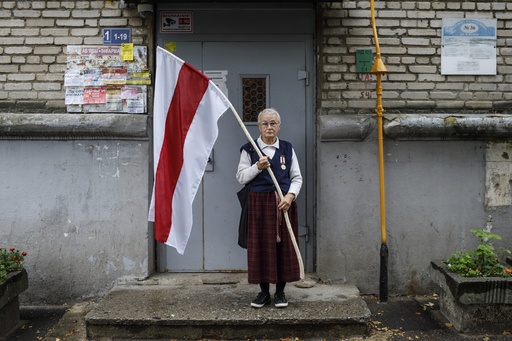TALLINN, Estonia — Belarusian citizens are undergoing a resurgence of Russification, as Moscow increases its economic, political, and cultural influence on the country, overshadowing Belarusian identity in favor of Russian dominance.
Under President Alexander Lukashenko’s rule for over three decades, Belarus has transitioned to predominantly using Russian in official business, media, and education. Lukashenko, who made Russian an official language alongside Belarusian, has allowed Russia to wield substantial control in Belarus, leading to a decline in Belarusian language usage and nationalist symbols.
Belarusians who express their national identity through speaking Belarusian are often viewed with suspicion, with the language increasingly seen as a form of political opposition to Lukashenko’s regime. The suppression of Belarusian culture and language has led to a climate of fear and discrimination for those who seek to preserve their national identity.
Despite efforts by some Belarusians to uphold their language and cultural heritage, widespread Russification is reshaping the country’s identity through measures such as promoting Russian narratives, closing Belarusian nationalist organizations, and implementing joint educational programs with a pro-Russian agenda.
The parallels drawn between Belarus and Ukraine highlight a strategic move by the Kremlin to consolidate its influence in Belarus, prompting concerns about the erosion of Belarusian sovereignty and national identity. The consequences of Russification in Belarus are far-reaching, affecting not only language and culture but also political dissent and freedom of expression.


